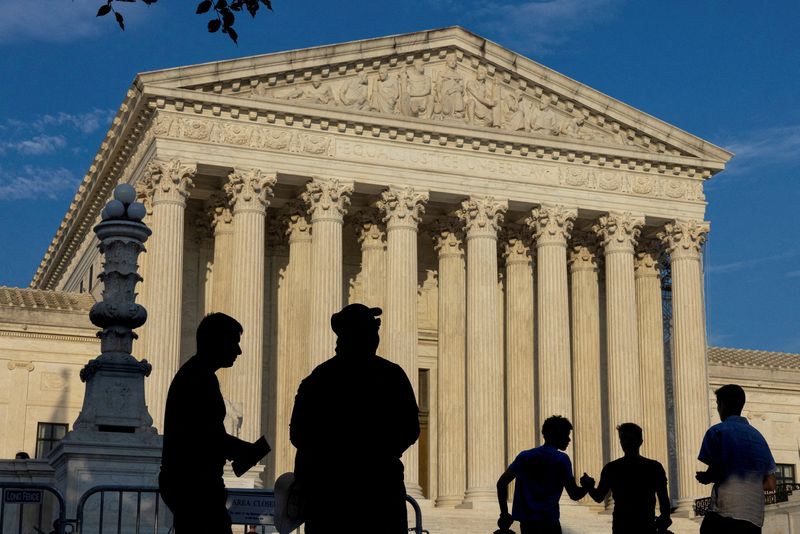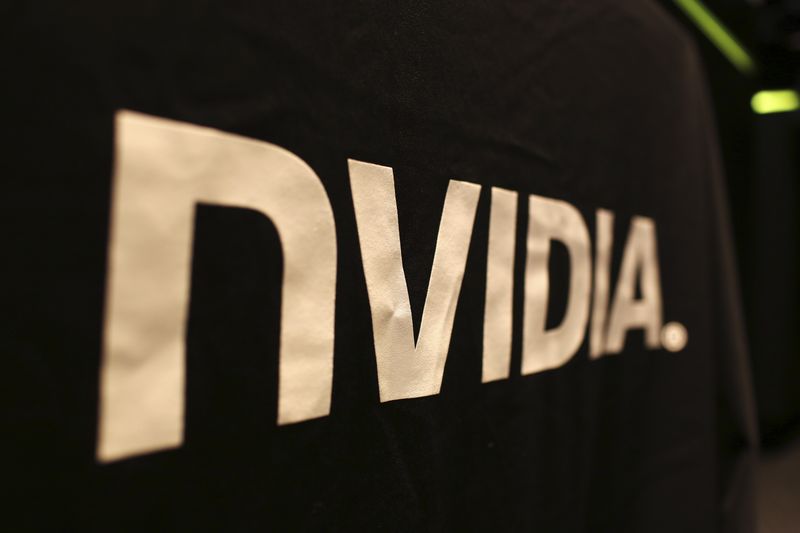By John Kruzel
WASHINGTON (Reuters) -The U.S. Supreme Court on Wednesday rejected an appeal by artificial intelligence chipmaker Nvidia (NASDAQ:) to avoid a securities fraud lawsuit by shareholders who accused the company of misleading investors about how much of its sales depended on the volatile cryptocurrency market.
The justices, who heard arguments in the case on November 13, opted not to decide the underlying legal dispute and instead dismissed Nvidia’s appeal of a lower court ruling that allowed the class action could continue in 2018. The lawsuit is being led by Stockholm, Sweden-based investment manager E. Ohman J:of Fonder AB.
The Supreme Court, by ruling that it should not have allowed the appeal, upheld the lower court’s decision.
The Supreme Court’s dismissal came with a one-line order, without explanation.
During arguments, some judges expressed reservations about intervening in the case. They questioned whether there was a clear legal issue for them to decide, rather than just a dispute over facts, and indicated that they were not ideally placed to resolve the case given its technical complexity .
At issue was whether prosecutors met the raised legal bar for bringing private securities fraud lawsuits, set by a 1995 federal law called the Private Securities Litigation Reform Act, which aimed to bar frivolous lawsuits.
Prosecutors accused Nvidia and its CEO Jensen Huang of violating a 1934 federal law, the Securities Exchange Act, by making statements in 2017 and 2018 that falsely downplayed how much of Nvidia’s revenue growth came from crypto- related purchases.
Starting in 2017, as the price of certain cryptocurrencies rose, Nvidia’s chips became increasingly popular for crypto mining, a process that involves performing complex mathematical equations to secure cryptocurrencies such as bitcoin and ether.
In late 2018, amid a decline in crypto profitability, Nvidia’s revenues fell short of expectations, causing its stock price to fall in early November of that year.
The lawsuit seeks, in part, unspecified monetary damages to recoup the lost value of Nvidia stock in the hands of the investors.
Nvidia agreed in 2022 to pay US$5.5 million to US authorities to settle charges that it failed to properly disclose the impact of crypto mining on its gaming business, but without admitting federal regulators’ findings or to deny.
A federal judge dismissed the shareholder lawsuit, but the San Francisco-based 9th U.S. Circuit Court of Appeals subsequently revived it. The 9th Circuit ruled that the plaintiffs had adequately alleged that Huang had made “false or misleading statements and had done so knowingly or recklessly,” allowing their case to proceed.
Deepak Gupta, who represented the shareholders before the Supreme Court, called the dismissal “a victory for corporate responsibility.”
“The Supreme Court Bar, backed by the U.S. Chamber of Commerce and its allies, often seeks to raise non-existent legal issues in an effort to limit class actions,” Gupta said. “We hope the court will think twice the next time a company uses the same playbook.”
An Nvidia spokesperson said the company is “fully prepared to continue our defense.”
“Consistent and predictable standards in securities litigation are essential to protecting shareholders and ensuring a strong economy, and we remain committed to supporting them,” the spokesperson said.
Nvidia had argued in the Supreme Court that the plaintiffs had failed to adequately demonstrate that the challenged company statements were false, or that the company had intentionally or recklessly misled investors, as required by law.
The plaintiffs countered that their suit contained sufficiently strong allegations – drawn from former employees, market analysis and expert advice – to survive Nvidia’s motion to dismiss and advance to the discovery phase of the lawsuit.

President Joe Biden’s administration supported the shareholders in the case.
The Nvidia dispute was one of two cases before the Supreme Court in November involving the right of private litigants to hold companies accountable for alleged securities fraud. The other, involving Meta’s Facebook (NASDAQ:), was argued on November 6 and similarly dismissed by the justices on November 22.


